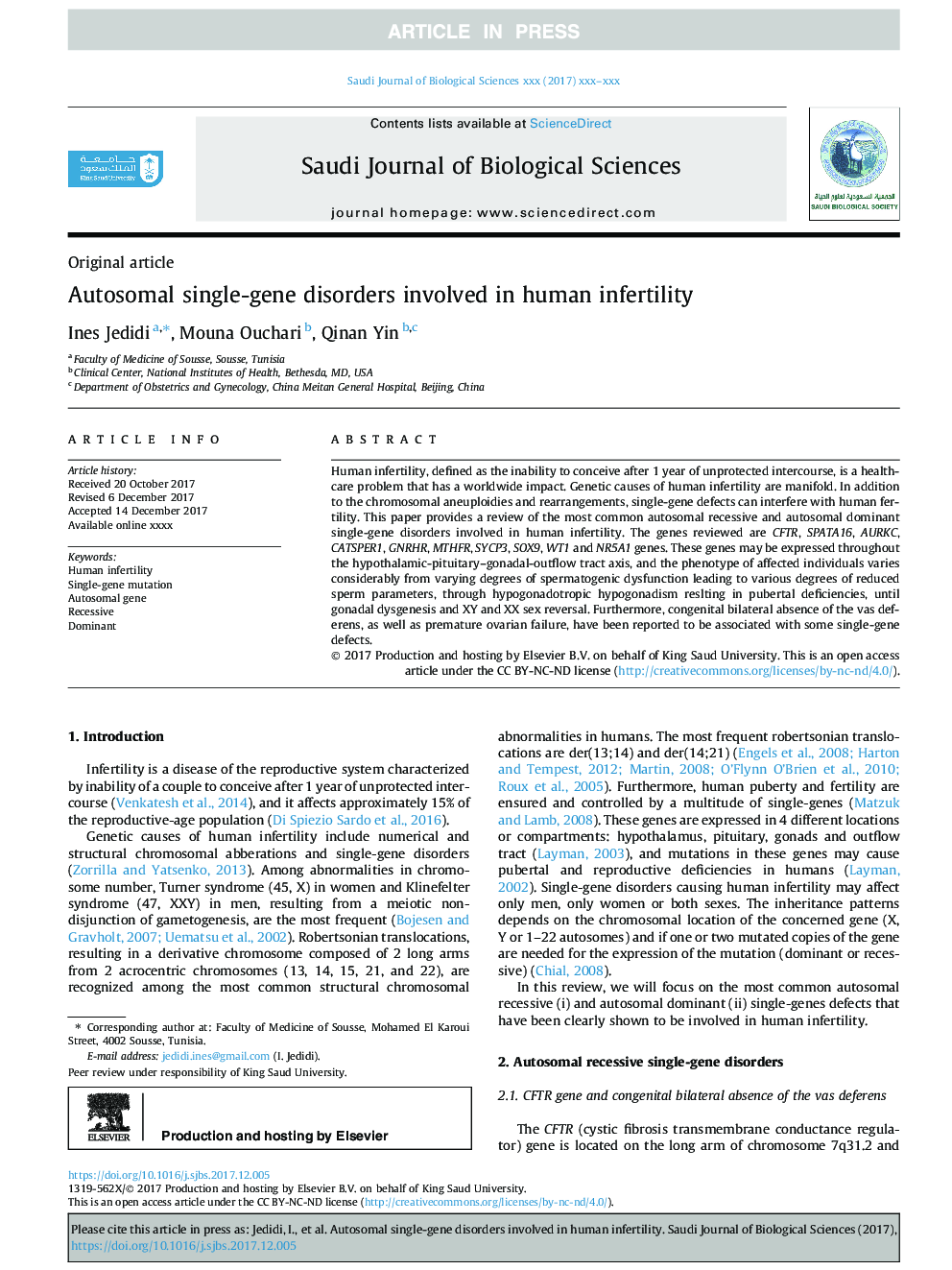| Article ID | Journal | Published Year | Pages | File Type |
|---|---|---|---|---|
| 8849714 | Saudi Journal of Biological Sciences | 2018 | 7 Pages |
Abstract
Human infertility, defined as the inability to conceive after 1â¯year of unprotected intercourse, is a healthcare problem that has a worldwide impact. Genetic causes of human infertility are manifold. In addition to the chromosomal aneuploidies and rearrangements, single-gene defects can interfere with human fertility. This paper provides a review of the most common autosomal recessive and autosomal dominant single-gene disorders involved in human infertility. The genes reviewed are CFTR, SPATA16, AURKC, CATSPER1, GNRHR, MTHFR, SYCP3, SOX9, WT1 and NR5A1 genes. These genes may be expressed throughout the hypothalamic-pituitary-gonadal-outflow tract axis, and the phenotype of affected individuals varies considerably from varying degrees of spermatogenic dysfunction leading to various degrees of reduced sperm parameters, through hypogonadotropic hypogonadism reslting in pubertal deficiencies, until gonadal dysgenesis and XY and XX sex reversal. Furthermore, congenital bilateral absence of the vas deferens, as well as premature ovarian failure, have been reported to be associated with some single-gene defects.
Keywords
Related Topics
Life Sciences
Environmental Science
Ecology
Authors
Ines Jedidi, Mouna Ouchari, Qinan Yin,
